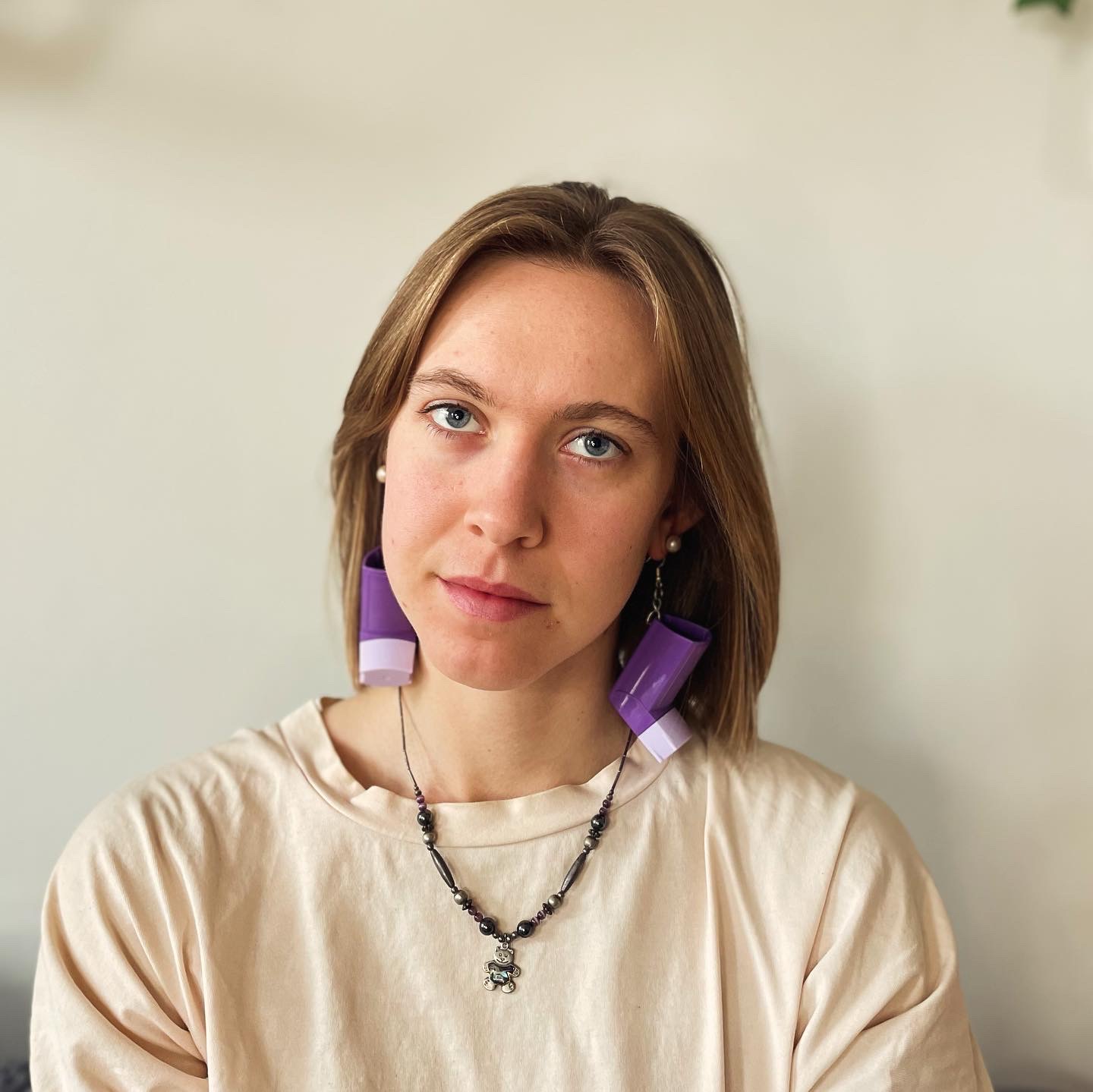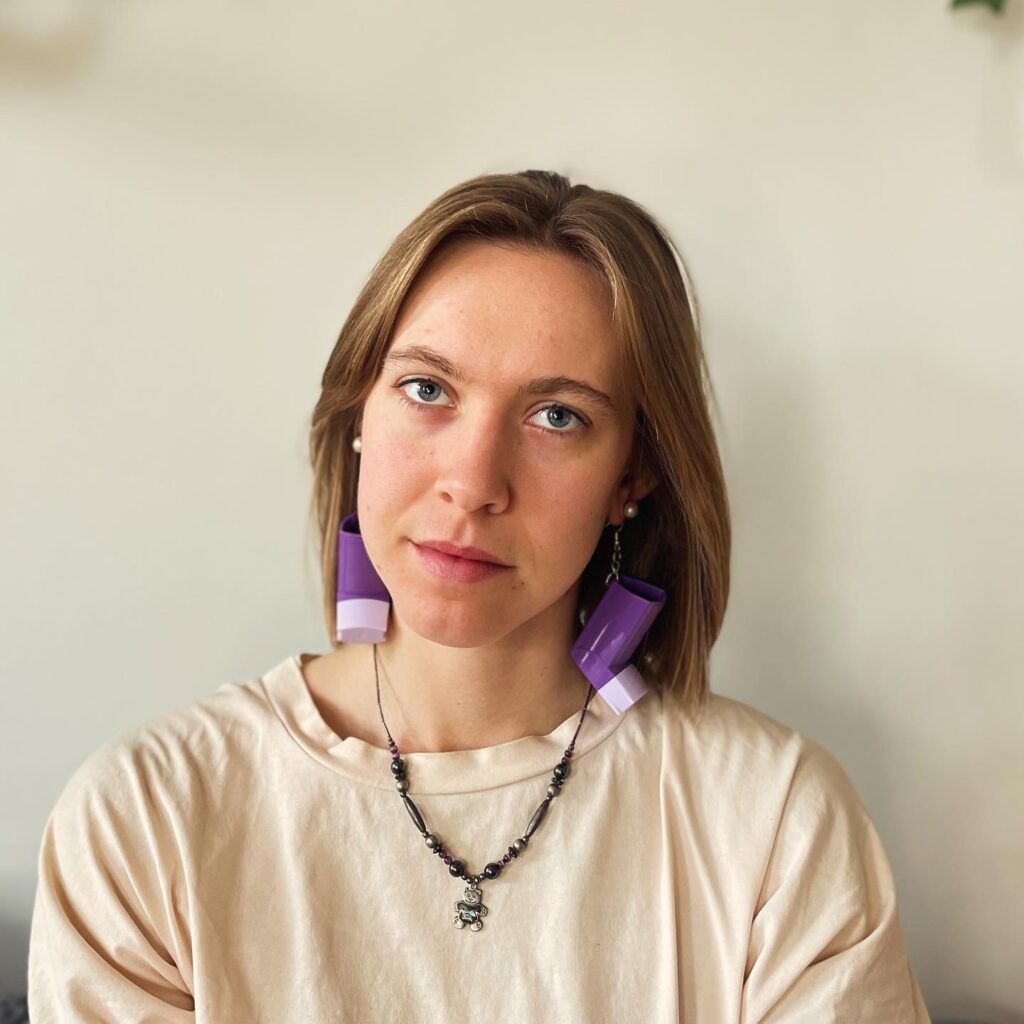Your cart is currently empty!

A story about poverty, neglect, healthcare, and my lungs.
An adapted Instagram diary entry from November 27th, 2023.
Right now, I am struggling to figure out what to do about my now depleted Symbicort inhaler. I take this inhaler twice in the morning, every morning, in order to keep my lungs in good shape. I take a deep breath, and at the same time, press the top of the red inhaler with my lips wrapped around as I hear and feel its “pshh” of airborne anti-inflammatory goodness. Its retail price averages between $250-$500 without insurance, about $45 with insurance, and about $60 with GoodRx. It is a daily inhaler, a type of medicine that is focused on maintaining a baseline level of lung health, as compared to an emergency inhaler, who’s purpose is to open your airways when you suddenly cannot breath.
This is a story about poverty, neglect, healthcare, and my lungs.

I was born with “weak lungs” as my father would say it. On one hand I know this to be true- as a kid on the swim team, I always opted for backstroke during swim meets, because you never truly had to hold your breath while racing. When I played soccer and lacrosse, I chose outside defense, because I didn’t have to run unless an offender came your way, and usually that only involved a few sprints. I remember wondering as a child why other kids weren’t as out of breath as I was. Was it because I was slightly overweight? Was it because I was being dramatic? Was it because I wasn’t strong enough? I wondered, but never asked anyone for help, because as a child it is uniquely challenging to verbalize your thoughts, feelings and experiences. I was always able to participate in whatever sport I wanted to growing up. It was harder for me, but never prohibitive.
As my father lost his job while I was in middle school (or whatever the complicated story is), I would spend half of my time in his home that was heated by a wood stove in the winter, and the other half in my mother’s home, heated with a traditional furnace. I spent half of the days of the winter months inhaling the wood burned smoke from middle school to early high school, and the other half, breathing in normal, clean air. In my father’s home, I used to prop my bedroom windows open in the below freezing weather to help filter out the smoke that clouded my room. I remember coming home from school and screaming at my father because he had not started the fire yet- the temperature inside the house would be nearly as cold as it was outside. He would begrudgingly start the fire due to my protest, and I would sit- with my winter coat still on- by the door of the wood stove on top of a pillow to stay warm from the frozen floor. If I tried to do my homework at the kitchen table immediately after arriving home from school, it often was not yet warm enough due to the delayed start of the fire. I remember my hands being so cold that I couldn’t hold a pencil, wondering if my teachers would believe me if I told them I couldn’t complete my geography assignments because of my unique living conditions. I remember wearing gloves- fingerless gloves, mittens, thin cotton gloves- while trying to do algebra and calculus homework, hardly able to write the numbers I needed because the thick or slippery fabric. I remember the hours I spent sitting on the ground in the dimly lit living room, leaning against the couch with my legs toasty by the fire, but my back frigid from the extra foot away from the fire, doing homework on top of my binder on my folded knees. I eventually became known for my fingerless gloves in school, a token of my “alternative identity”. The real reason I wanted fingerless gloves was to make it easier to do my homework in my father’s home.
My father’s active negligence and lack of responsibility led to my permanent disease.
I turned towards meditation around the age of 16. I used my breath to find peace in myself as my home life (in both homes) was falling apart. I eventually spent 5 weeks on a study abroad trip in India in college, living on a Tibetan Buddhist monastery, to learn and grow spiritually. Breathing is paramount for meditation and mindfulness- I was already acutely aware of my breath for many years. How I was the most out of breath of my soccer teammates in high school after finishing up sprints. How, if I let myself get nervous when pushing hard during rowing practice, my chest would tighten up more, and I wouldn’t be able to finish the workout. I wanted to be happier as my life was crumbling before my eyes, and meditation seemed to be the cheapest solution. I also believed that if I breathed “better”, then maybe I could fix my lungs.
In my first year and a half of college, I suffered numerous respiratory conditions. I remember the doctor chuckling in surprise when she delivered the news about how “lucky” I was to get mono and strep throat at the same time. I had at least two respiratory infections that required antibiotics. I had general colds and sicknesses, and to this day, I still believe that my freshman dorm had mold in it (it was the oldest building on campus) which contributed to my frequent illnesses. There was no way that I went from hardly ever getting sick in high school to getting sick 2-3 times a semester for most of college, all because of the “mix of germs”, new people and environment that is often used to justify why so many first-year students get sick. I remember forcing myself to take the stairs up to the fourth floor of my sophomore year dorm despite being sick, and, at the final staircase, struggling so concernedly for my breath that I sat down, gasping for air, hoping no one would see me on the verge of passing out. My eco-conscious guilt of “wasting electricity” for taking an elevator, combined with the self-gaslighting I had learned from my childhood, is what convinced me to take the stairs. I had never experienced such a terrifying inability to breath until that moment.
In my sophomore year of college, we had a 5k running test for the rowing team. I was the fastest girl on the novice team by a long-shot, yet I could not complete it. I nearly had an anxiety attack- on the verge of tears in the first quarter of my second lap- walking up to my coach frantically telling him I couldn’t do it, hoping he wouldn’t force me to finish the run. I felt like a liar, a failure, an embarrassment. How could I be the fastest woman on the team, but unable to survive a simple run? I must be lazy, I just need to try harder. He told me to stop, and suggested I see a doctor. His nonchalantness was comforting. If I hadn’t felt the weight of suffocation during that run and nearly cried in front of my coach, I’m not sure when I would have gotten the official diagnosis for asthma. I was 18 years old when I got my first inhaler, years after I first experienced the athletic suffocation of the sports I loved as a child.
I’ve suffered from what my friend calls “altitude mental breakdowns”, where on a bike ride, you have a sort of hybrid asthma-anxiety attack. You see, your breath and your mind go hand in hand. It is terrifying to feel unable to breath, and being anxious about not breathing makes your breathing worse. In order to overcome this, you absolutely must force yourself to calm down in a moment’s need. You have to take more frequent breaks on a bike ride, be strategic in how hard you push yourself (even though you know your legs can push much harder), keep your rescue inhaler on hand, and in the event that despite all of this you reach an asthma tack, you must choke that anxiety attack in its tracks and shove it into the ground. If you let your mind get out of control, death can become a legitimate concern.
So here I am now, uninsured because I live in a country where profit in the hands of a few wealthy elite- and in this case, pharmaceutical and insurance companies- matters more than societal wellbeing. A country where we brag about having the most money of any country in the world, yet citizens every day gamble with medicine, doctors appointments, insurance and more, rationing their insulin and turning to YouTube instead of urgent care, forcing them to endure potentially life threatening scenarios, all because they can’t afford what they need to survive. I have 0 inhalations of my daily inhaler left. The raw market price for my inhaler is around $350. I used to pay $40 for a 2 month supply with insurance. If I use GoodRX, I might be able to snag it for $65.
My lungs have taught me a lot about myself, my parents, poverty, politics, disability, healthcare.
To this day, the sight and smell of fire- whether camping, in someone’s home, or in a scented candle- still fills me with rage.
I wish my country didn’t see health as profit. I wish my country took care of its people, because every single person inherently deserves health. I wish that I could purchase my inhaler without insurance companies dictating what they will and will not cover (because yes, they will make you change medication for their own financial motives, and not based on the advice of your doctor). I wish private insurance companies hardly existed. I wish I didn’t have to fight from doctor’s office to insurance to medicaid to price comparisons to medicine rationing to pharmacies etc. just to be able to breath semi-normally. I wish I didn’t have to argue with my insurance company before biking across the country this summer, who didn’t want to give me a 4 month supply upfront, even though my doctor already approved it.
I wish we had free and universal healthcare.
I wish I didn’t have to fight to breath.
Leave a Reply
You must be logged in to post a comment.